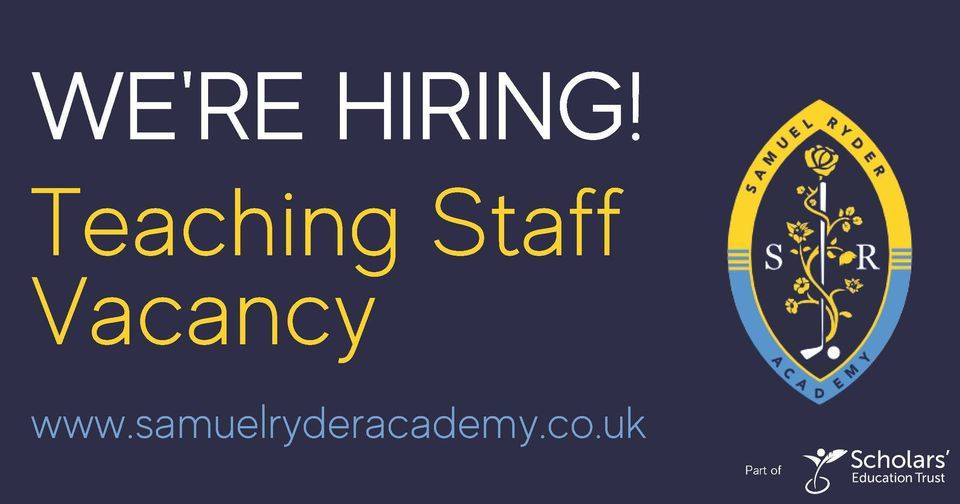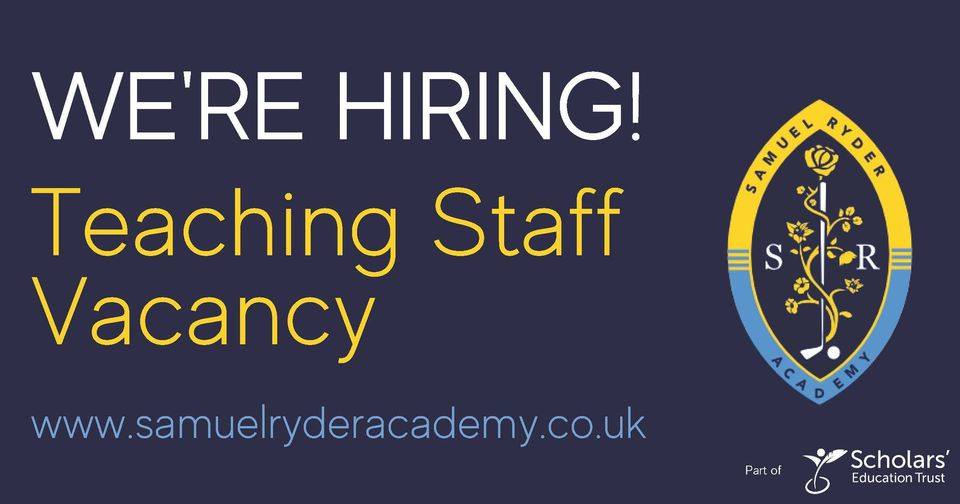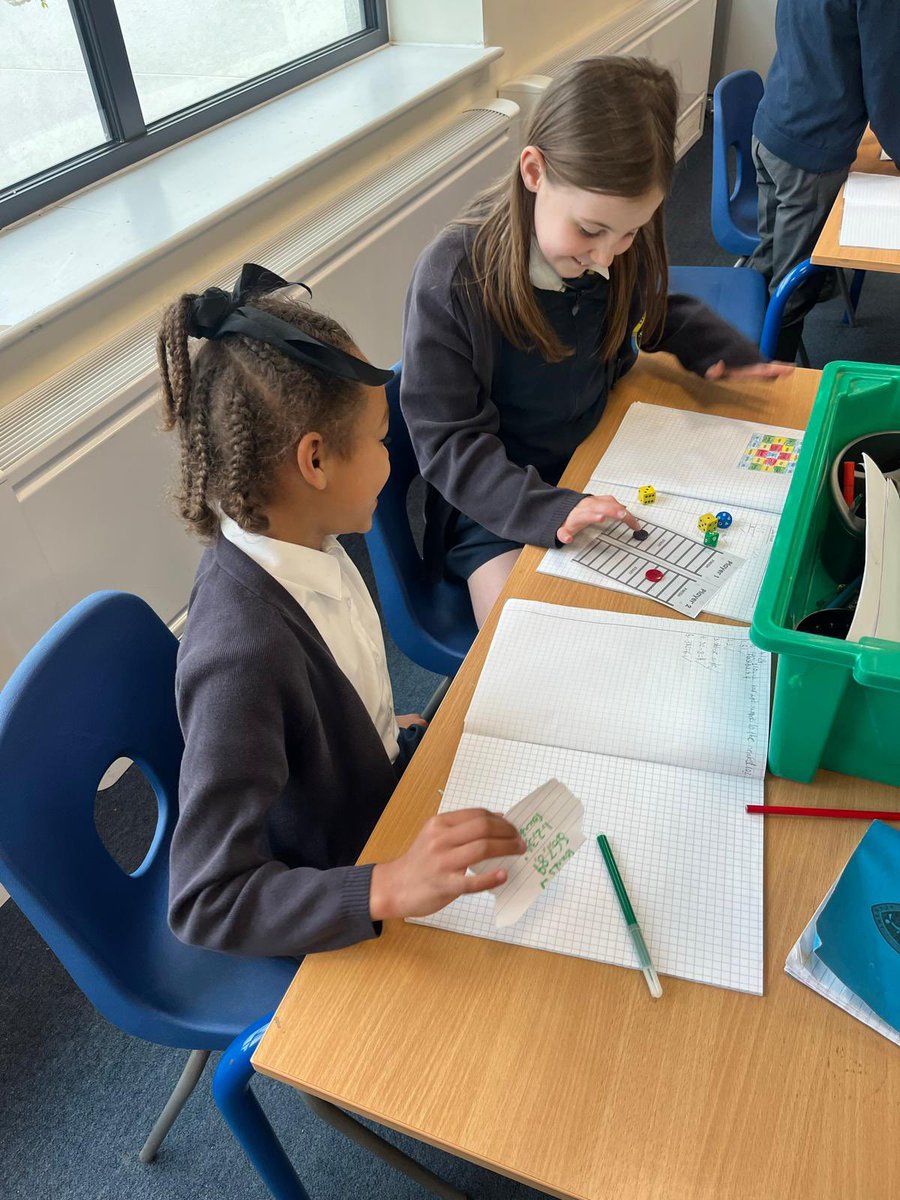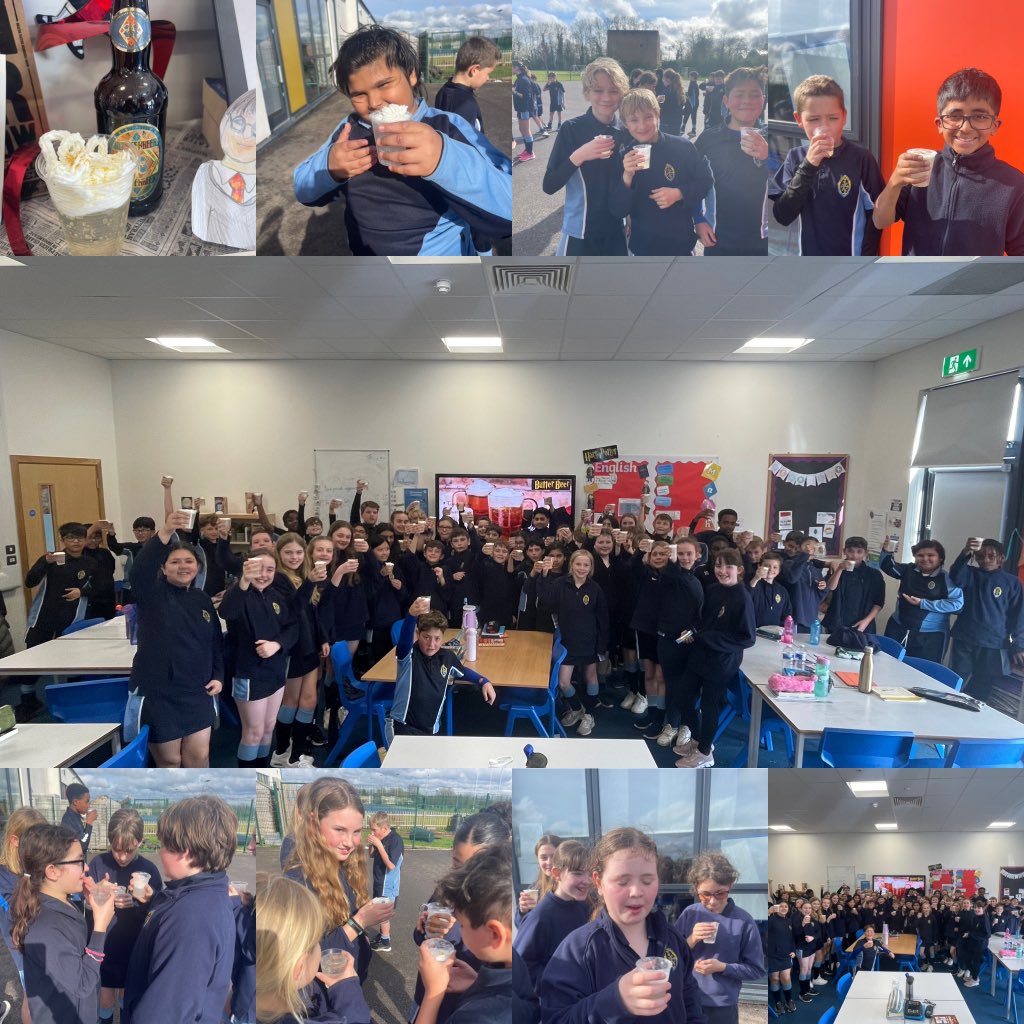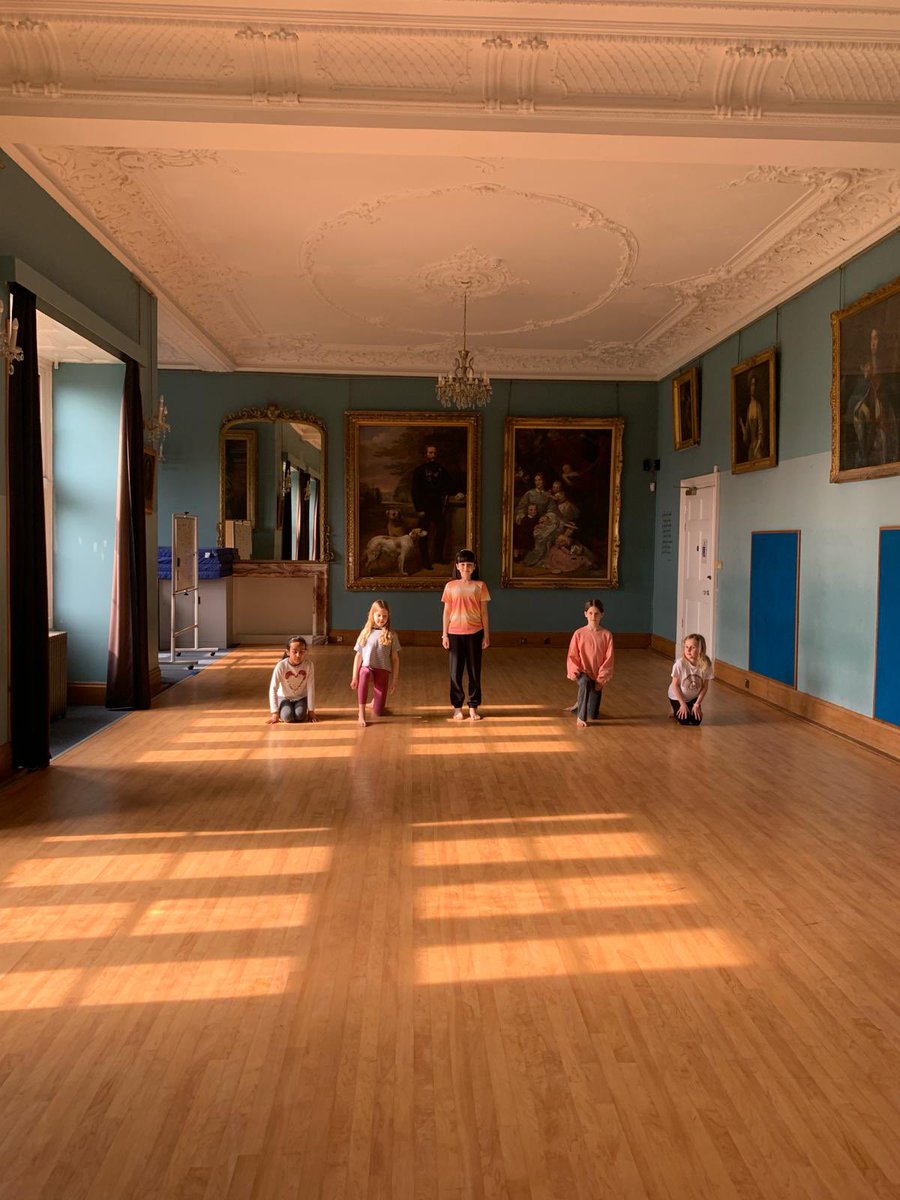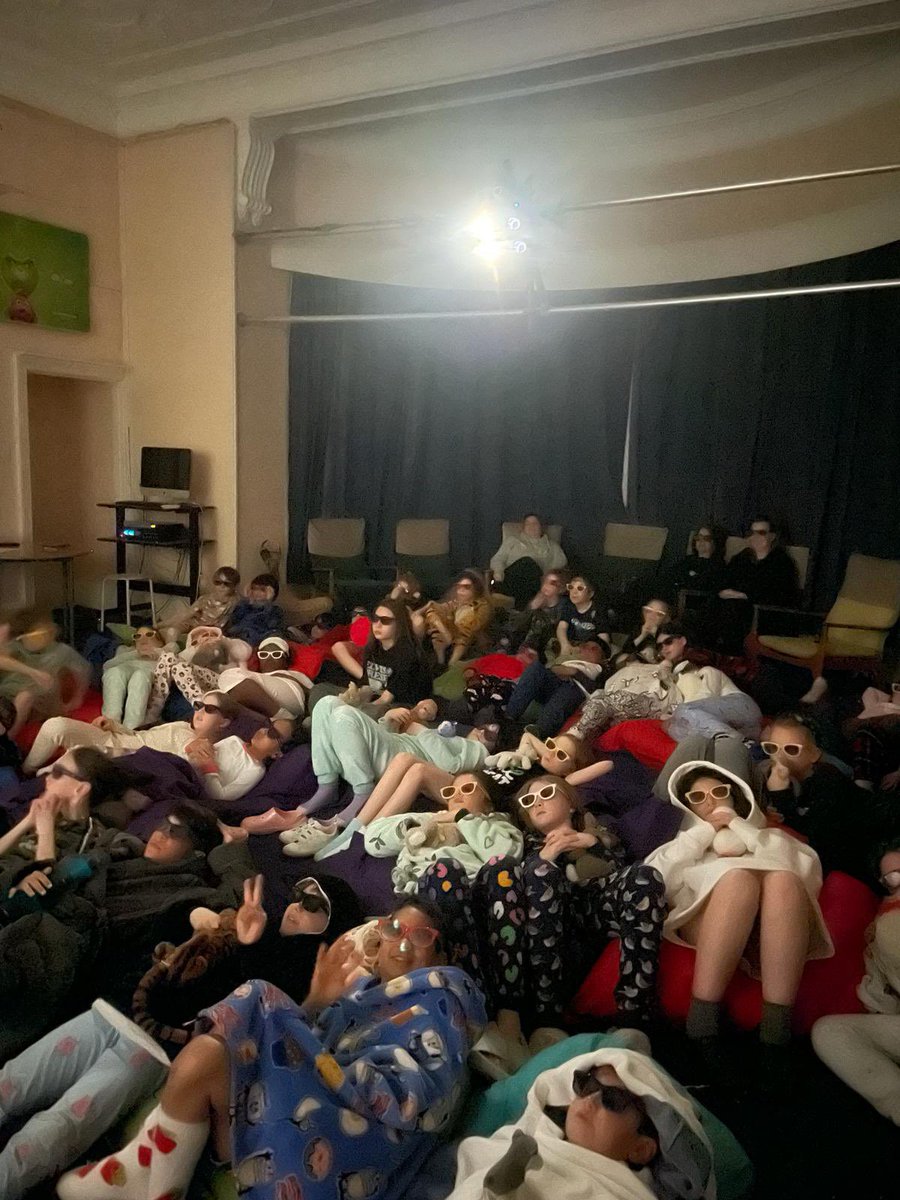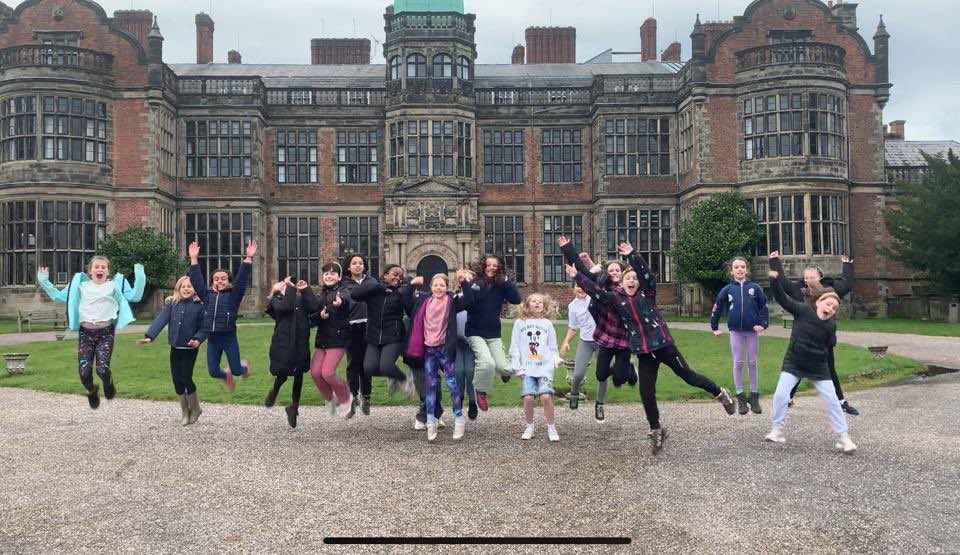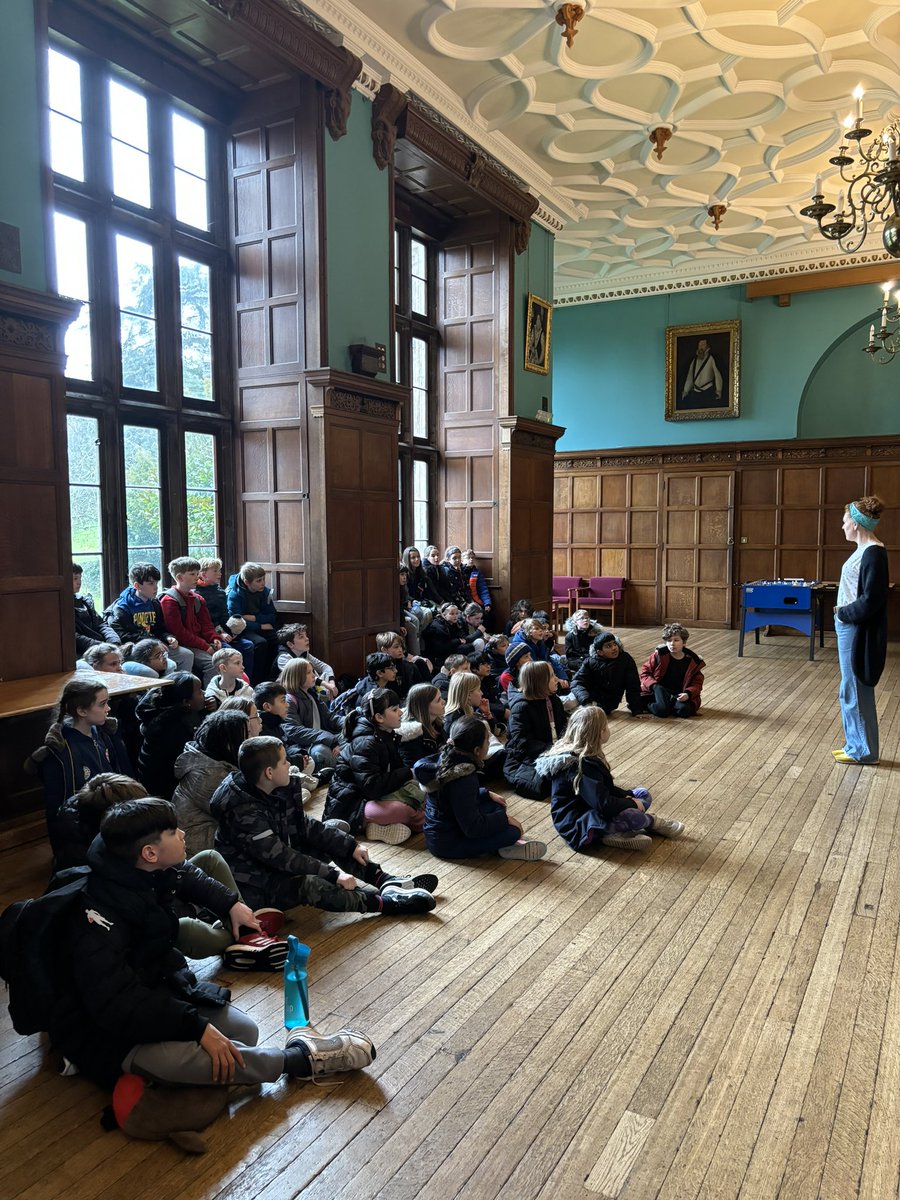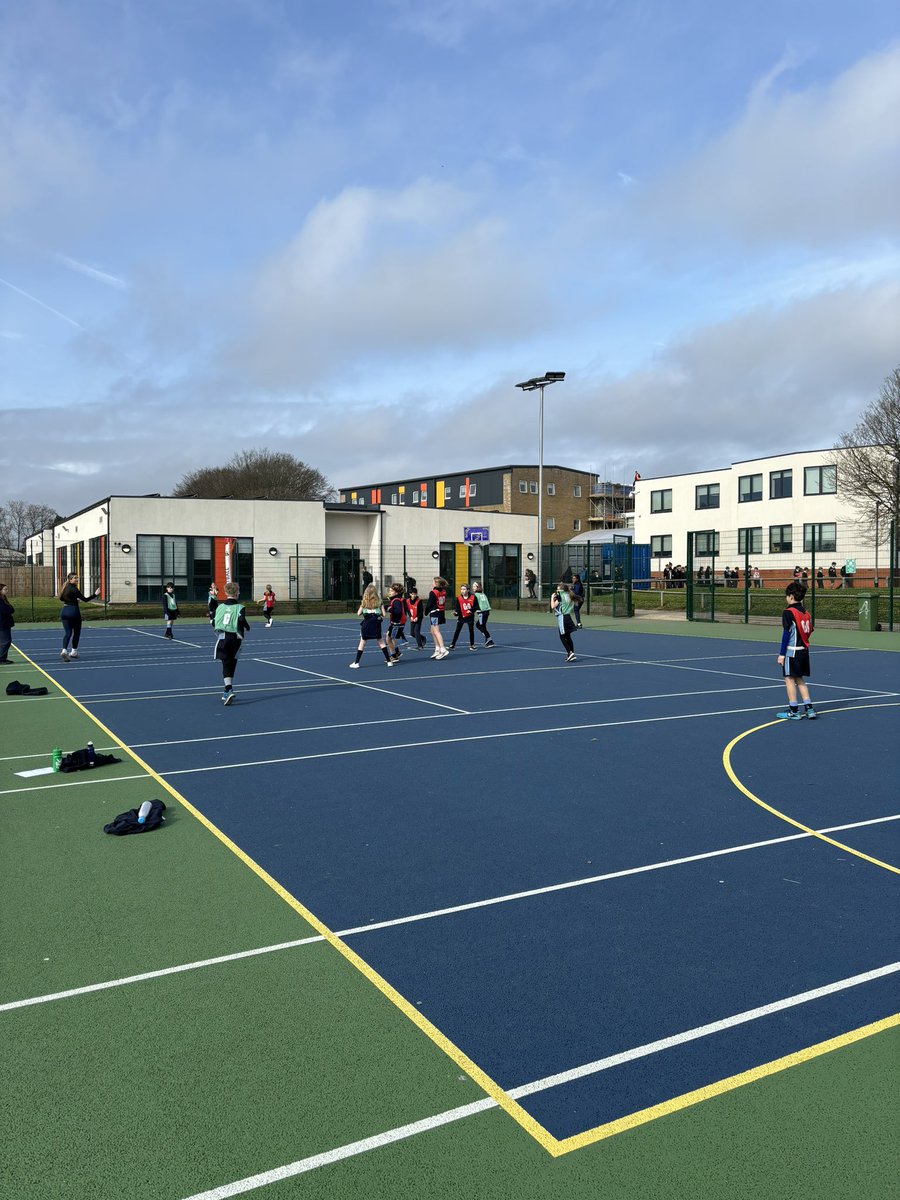Drama
Drama at Samuel Ryder Academy aims to produce creative thinkers who take a collaborative approach to producing high quality pieces of devised and scripted theatre. The curriculum encourages students to work both independently and in groups, through all key stages, learning and applying innovative techniques which mirror both traditional and contemporary work. Lessons in drama are both theoretical and practical with a focus on developing a range of drama knowledge, skills and techniques that will not only prepare students for drama in Key Stage 4 and beyond, but are also invaluable across all other subject areas. Students are taught to engage imaginatively and intellectually with drama forms and conventions through scripted and devised performances.
KS2
Drama is taught on carousel throughout the academic year to all Key Stage 2 classes, starting with one lesson per week. The drama curriculum on offer will aim to equip pupils with the knowledge and skills that will enable them to:
- Use role-play and other drama techniques to identify with and explore characters, issues, situations, settings and events and to respond thoughtfully in role (including to the presenter in role).
- Use role-play and other drama techniques to stimulate, scaffold and develop creative and critical thinking skills and to help pupils order their ideas, through playing roles and improvising in a range of imagined situations and settings.
- Gain confidence in using body, gesture, movement, sound and voice, in a variety of contexts and situations, for real and imagined audiences and purposes.
- Use drama and role-play in ways that give opportunities and imagined audiences for presentations, debates and writing purposefully in role.
- Improvise with, enact and create short scripts.
- Actively gain knowledge, skills and understanding associated with drama for learning and with the artistic practice of theatre.
SCHOLAR is embedded within drama lessons at Key Stage 2, where students are actively encouraged to be curious about their everyday lives, be aspirational with their creative ideas by using different types of stimuli to engage with their imaginations, to share and practice leadership skills when working in groups by directing others on stage and to constantly reflect on theirs and others practical work and performances through effective oral feedback. Within Key Stage 2, the drama department aims to build on social skills that enable students to practice oracy actively in lessons. This ensures students are actively refining their team building and confidence in practical lessons. The department aims to utilise and share a range of visual performances through technologies to engage and inspire students in the specialism.
Key Stage 2 Overview
|
|
Autumn Term |
|
Year 4 |
Basic Drama principles Introduction to performance Collaboration & Teamwork |
|
|
Spring Term |
|
Year 5 |
Introduction to scripted drama Basic principles of devised drama Leadership & Teamwork |
|
|
Summer Term |
|
Year 6 |
Staging a full Musical Production alongside the Music & Dance departments Introduction to directorial skills |
KS3
Year 7
Students attend one lesson of drama each week. Students are introduced to the subject by learning key drama techniques, such as freeze frames, narration, split scene, montage, mime and many more, which will help them to understand how to structure and stage a piece of drama effectively for a specific audience. Students will also start to explore a range of topics and issues within different types of drama and begin experimenting with different styles and genres. They will also develop their knowledge and application of what theatre is and its purpose within our society. Within these practical lessons students will learn and develop different skills: how to co-operatively work in a group, how to think creatively, how to evaluate work they have seen. They are also encouraged to develop their confidence, leadership, interpersonal and performance skills, through role-play and sharing work with their peers. Students are practically assessed in groups at the end of each half term - where they will analyse and evaluate the success of theirs and others work and feed this back within class discussions.
In year 7, students build their independence through developing their group working skills. This enables students to refine their oracy skills and become familiar with the breadth of sophistication of the drama terminology. Cultural capital is a priority in the subject as students study drama styles, practitioners and genres from around the world. The craft of performance and basic principles of devising are explored through a variety of technologies; including SeeSaw and videoing a rehearsal log of performance outcomes. We expect students to build a sense and empathy to take other people’s different viewpoints into account.
KS3 Drama Year 7 SOW Overview
|
Autumn 1 |
Autumn 2 |
Spring 1 |
Spring 2 |
Summer 1 |
Summer 2 |
|
Introduction to Drama
Drama Skills |
Darkwood Manor
Total Body Drama |
Silent Movies
Mime |
Text/Film based study
Plot & character |
Fame & Celebrity
Issue based Drama |
Devising from a stimulus Staging an original Drama |
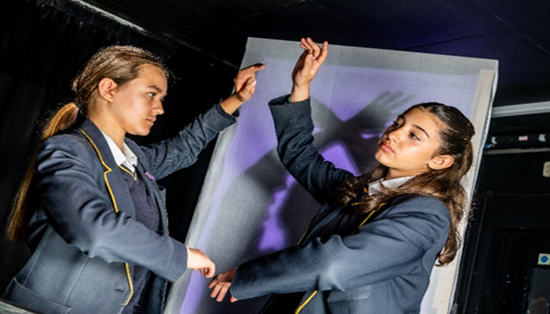
Year 8
In year 8, students attend one lesson of drama each week, building on the foundations that are laid in year 7. Students develop their understanding and appreciation of different performance styles and genres such as Greek theatre, character creation, storytelling, issue-based drama, Shakespeare and comedy. Students also hone their craft as actors, directors, and designers in devising their own performances from a range of stimuli, using more advanced techniques and strategies. In addition, students are introduced to working with some published play texts and the process of working with a script. Students begin to understand the purpose of drama and how it can be used effectively in different contexts, not only as a form of entertainment, but also to educate different types of audiences. Students are practically assessed in groups at the end of each half term - where they will analyse and evaluate their own performance and the performances of their peers, and feed this back within class discussions.
Within year 8, students participate in a variety of communities and social settings, including by volunteering, cooperating well with others. We study a range of cultural forms and genres in the drama field. The rehearsal process is explored through a variety of technologies; including SeeSaw and self-assessing outcomes for refinement and improvement. The department encapsulates students’ understanding of moral responsibility through the exploration of ethical issues within a character and stimuli.
KS3 Drama Year 8 SOW Overview
|
Autumn 1 |
Autumn 2 |
Spring 1 |
Spring 2 |
Summer 1 |
Summer 2 |
|
Greek Theatre Myths & Legends |
Superhero’s Creating character & stereotypes |
Working with play texts |
Shakespeare
|
Issue based Drama Docudrama |
Comedy |
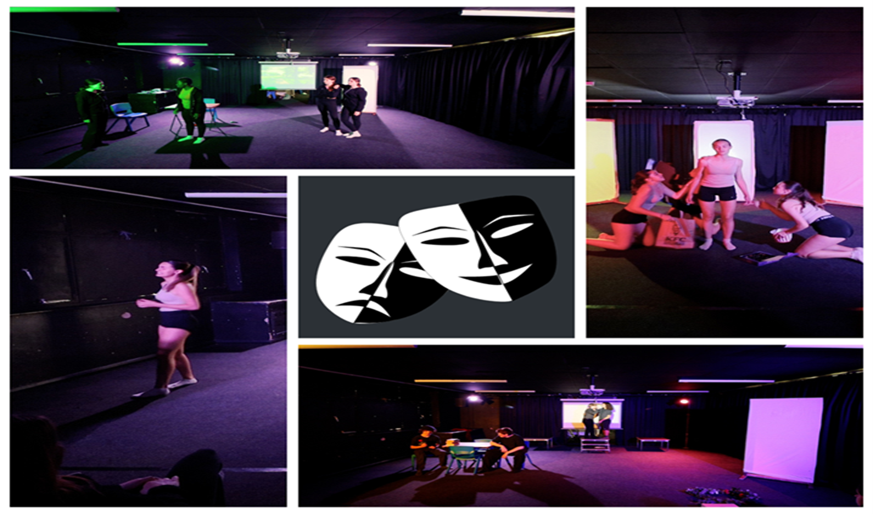
Year 9
Course: Bronze Arts Award, Trinity College
Students attend two drama lessons per week and work towards the Bronze Arts Award (Trinity College London) qualification over the course of the year. Through the Arts Award, students will achieve a national qualification that will build confidence through nurturing their individual interests, while also equipping them with life skills that will support their wider education and future employment. Students take on challenges and participate in drama activities, experience live theatre events, get inspired by practitioners and artists and share their drama skills with others.
To pass the Bronze Arts Award, learners are required to create an individual arts log or portfolio during the course that demonstrates how they meet the following requirements in four distinct parts:
- Development of interests, knowledge and skills through active participation in drama (part A)
- Experience of at least one arts event/experience as an audience member (part B)
- Research into the work of a practitioner/artist/craftsperson that inspires them (part C)
- Experience of passing on an arts skill (part D)
The Bronze Arts Award lays the foundations for the GCSE course that starts in year 10: developing the skills and techniques expected to succeed at Key Stage Four drama. Students also have the opportunity to progress onto Silver or Gold Arts Award.
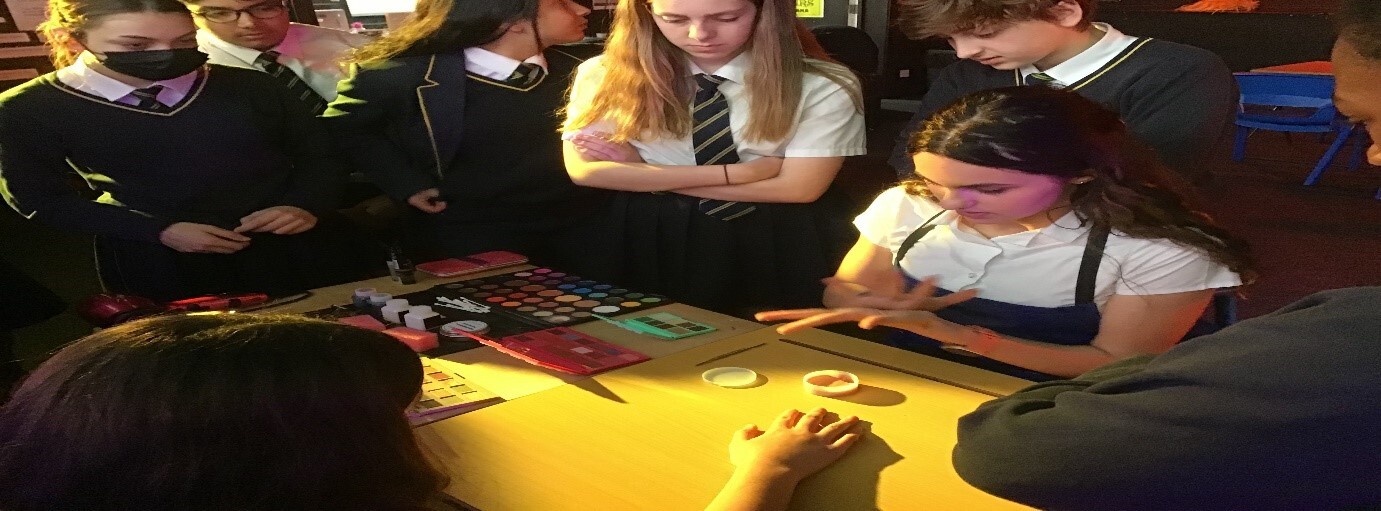
SCHOLAR is embedded within drama lessons at Key Stage 3, where students are actively encouraged to be socially aware about their community and the society in which they live, curious about the world around them and the decisions they make, aspirational with their depth of research and quality of ideas explored, leaders within group work, where students are actively encouraged to direct each other on stage, deliver workshops independently and to be reflective learners where students have to evaluate theirs and others’ practical performance work through both oral and written feedback.
Within year 9, creativity underpins the curriculum and our drive is to ensure that students build cultural appreciation throughout the course. Through digital technologies, students complete an independent research project on SeeSaw and explore diverse workshops focussing on a range of drama genres, practitioners and styles. This enables students to build the desire to improve their understanding of cultural diversity and the extent to which they understand, accept, respect and celebrate our differences. Students become confident and independent thinkers and strong communicators. They participate in an engaging and motivational practical curriculum that supports their personal development and build on confidence in a creative performance environment.
KS3 Drama Year 9 SOW Overview
|
|
Autumn |
Spring |
Summer |
|
Year 9 |
Trestle Masks & Live Theatre Experience |
Arts Research Project & Delivering an Arts Workshop |
How to devise theatre & Performing from a text |
KS4
Course: Pearson Edexcel Level 1/Level 2 GCSE (9-1) in Drama (1DR0)
Students attend three lessons per week and are taught in mixed ability classes. Students study the 2016 new specification Edexcel GCSE Drama course. This course ensures students explore many different techniques that further enhance the skills gained in year 9. In Component 1, students develop their devising skills by creating original drama using the influences of different genres and practitioners, using a choice of stimuli set by the department. The set text studied for the Component 3 written exam is DNA by Dennis Kelly. This is studied practically and theoretically throughout the course, focusing on analysis from the perspective of an actor, director and a designer. During the course, students will take part in professional workshops and attend at least two professional theatre productions, one of these performances is evaluated and analysed in their final written exam. Students can specialise in design for the GCSE course, rather than choosing performance for the practical components. Design students can choose between lighting, sound, set (including props) and costume (including masks and make up). The course assessment is split into 30% practical and 70% written, with one piece of coursework and a final written exam. The course is split into 3 components: Devising, Performing from text and Theatre Makers in practice.
SCHOLAR is embedded throughout drama lessons at Key Stage 4, where students are actively encouraged to be socially aware about the community, society and world in which they live and the different cultures that exist within them. Students develop a curiosity about human behaviours, social interaction, relationships and decision making and build an awareness of the outcomes and repercussions of those decisions. Students are challenged with their higher order thinking by engaging in a range of influential theatre practitioners and playwrights. With creative ideas for devising and experimenting with different styles and genres of performance to educate different types of audiences students’ aspirations are raised. When working in a small group, students develop their reflectiveness by effectively analysing and evaluating the success of practical performance work and professional productions they have seen through both oral, and written feedback in the form of a piece of coursework and theory exam.
Within Key Stage 4, students will build on their understanding of cultural art forms in drama. They will examine and study knowledge and understanding of their set text in-depth: the themes, plot, characters, social, moral cultural connections, the playwright’s intentions and how these should be effectively communicated to an audience. Students will learn the roles and responsibilities in the rehearsal process and ensure they have leadership opportunities to explore and communicate directorial techniques to their fellow group members. Key stage four drama students are expected to build on willingness to participate in and respond positively to artistic directions. A range of digital technologies, namely SeeSaw will be used to capture and document this process and allow students to review and reflect on their drama outcomes. Students are expected to take full accountability and ownership in building their creative pieces.
Subject specific equipment requirements
Course Study Guides
Edexcel Drama GCSE Study Guide by Rhinegold Education
CGP Drama GCSE. The Revision Guide
GCSE Drama DNA. The Play Guide
Revise Edexcel GCSE (9-1). By Pearson
KS4 Drama SOW Overview
|
|
Autumn |
Spring |
Summer |
|
Year 10 |
History of Theatre & Practitioner Workshops |
Devising Exam Rehearsals & Written Exam Preparation |
Devising Exam Performance & Devising Coursework Preparation |
|
Year 11 |
Devising Coursework Completion & Written Exam Preparation |
Text Based Performance Exam Rehearsals & Performance |
Written Exam Preparation |
Beyond GCSE
Course: Pearson Edexcel Level 3 Advanced GCE in Drama and Theatre (9DR0)
Students follow the new Edexcel Specification (2016) which is a two-year A-Level course. This specification consists of 3 components across the two years and mirrors the GCSE course; Devising, Text in Performance and Theatre Makers in practice. Once again, the percentage weighting for this course is 30% practical and 70% written coursework and final exam.
Throughout the course, students will complete a devised performance as writers, directors and performers, perform text work for a visiting examiner and analyse play texts and watch a live theatre production as part of their final 40% written exam. Throughout the course, students have many opportunities to watch a diverse range of theatre productions, both in London and locally, and take part in workshops delivered by professional theatre companies. Both performer and designer pathways are available.
Developing Skills:
The demands of this A Level course are not only in the depth of knowledge expected by each student - through extensive investigation and research but the core skills which they will gain within the process of the work they carry out for each of the three components.
These transferable skills include: oral communication skills, creative problem-solving abilities, motivation and commitment, willingness to work cooperatively, the ability to work independently, time-budgeting skills, initiative, promptness and respect for deadlines, acceptance of rules, adaptability and flexibility, the ability to work under pressure, a healthy self-image, self-discipline, a goal-oriented approach, concentration, dedication, a willingness to accept responsibility, leadership skills and self-confidence.
To be extremely proficient at each of these skills gives students a wide range of choice when it comes to possible career paths and options.
Students develop ideas and refine the re-imagined concept. They share leadership and accountability for outcomes and become highly skilled in social confidence. A-Level students are expected to develop their cultural capital through watching and participating in live theatre performances. This develops their understanding of the craft and diverse cultural influences. Students implement a range of digital technologies: SeeSaw to document the devised process and filming and editing of performance outcomes. This enables students to understand the full aspects of theatre for analysis and evaluation purposes.
Subject specific equipment requirements
Course Study Guides
Edexcel A Level Drama Study Guide by Rhinegold Education
Edexcel Drama & Theatre Studies Active Book
Wider Curriculum
Drama Club - A lunch time club takes place during term time where students can further enhance and develop their creative skills by taking part in drama focused games, improvisational activities and either devised or scripted performances. Later in the academic year, students perform their work alongside music and dance in the Performing Art Showcase.
School Production (Secondary) - Students from all year groups are invited to take part in the annual school production which is performed during the Spring term. This is a valuable opportunity for students to work together creatively, make new friends and experience the thrill of performing to a live audience. There is a role to suit everyone whether it be as an actor, musician, singer, dancer, costume designer, sound engineer, lighting operator or front of house manager. Recent successful productions include Little Shop of Horrors, Sister Act, Shrek and Legally Blonde.
School Production (Primary) - Students in year 6 during the summer term work with the drama, music and dance departments to put on a full junior production of a book musical. Recent successful productions include The Lion King and Mary Poppins.
Each year, the drama department, alongside music and dance, engage in a variety of professional theatre productions for both enjoyment and exam syllabus. Recent productions include; The Lion King, Mary Poppins, Matilda, The Curious Incident of the Dog in the Night Time, The Life of Pi, The Play that Goes Wrong, The Woman in Black and an annual trip to the local pantomime with year 7.
In the Summer term there are House Drama competitions where students in year 7 and 8 and in years 9 and 10 compete against each other testing skills of improvisation and performance.
Careers
Following a GCSE or A-Level drama qualification, students have greater confidence in their public speaking skills and an enhanced ability to work in a team. Previous students of A-Level drama have gone on to become: actor, theatre managers, theatre designer, teachers, arts administrators, recruitment consultants, journalists, cinematographer, copy writer, drama therapist, writer, marketing manager, lecturer, sales manager, broadcasters, lawyers, barristers, customer service managers, disc jockey, speech and language therapist, youth and community worker, human resource manager.
Useful Links
https://careerpilot.org.uk/job-sectors/subject/drama
https://careers.yorku.ca/my-degree/drama-studies
https://theartcareerproject.com/drama-theater-careers/
https://targetcareers.co.uk/career-sectors/arts-and-creative/1015387-careers-in-theatre
https://www.prospects.ac.uk/careers-advice/what-can-i-do-with-my-degree/drama
KS4
DNA by Dennis Kelly
Teechers by John Godber
The Theatre of Bertolt Brecht by John Willett (Methuen 1977)
An Actor Prepares by Stanislavski (Methuen 1980)
The Frantic Assembly Book of Devising Theatre by Scott Graham, Steven Hoggett
The Theatre of Steven Berkoff, Methuen publishing
Shakespeare for Everyone by Emma Roberts & Sarah Tanat Jones
Write Your Own Scripts – Usborne
The Acting Book by John Abbott
The Young Actors Handbook by Jeremy Kruse
The Complete Brecht Toolkit by Stephen Unwin
KS5
The Crucible by Arthur Miller
Fences by August Wilson
Antigone by Sophocles (adapted by Don Taylor)
Artaud’s Theatre of Cruelty by Albert Bermel (Methuen 2001)
Games for Actors and Non-actors by Augusto Boal (Routledge 1992)
The Theatre of Bertolt Brecht by John Willett (Methuen 1977)
The Complete Brecht Toolkit by Stephen Unwin
The Empty Space by Peter Brook (Penguin 1990)
The Frantic Assembly Book of Devising Theatre by Scott Graham, Steven Hoggett
An Actor Prepares by Stanislavski (Methuen 1980)
Building a Character by Stanislavski (Methuen 1979)
The Complete Stanislavsky Toolkit by Bella Merlin
The Theatre of Steven Berkoff, Methuen publishing
The Young Actors Handbook by Jeremy Kruse
National Youth Theatre Monologues by Michael Bryher
